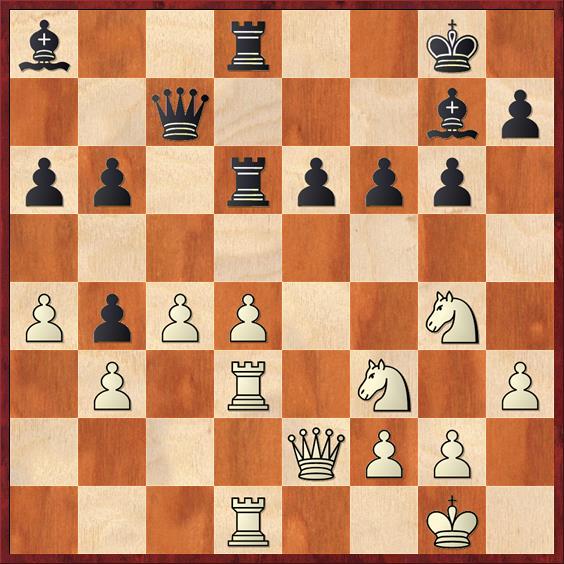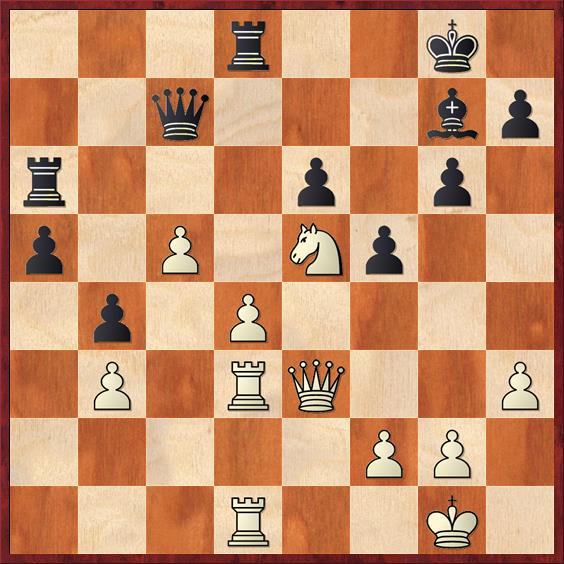Well, I was going to finish my coverage of the National Open by showing you part of my last-round game… but then the news came yesterday that blew all of those plans to smithereens. Walter Browne, the six-time U.S. Champion, has died.
Browne gave a 25-board simul at the National Open, and also played in the tournament, which means that he was playing competitive chess on the weekend before he died. For someone who loved chess so much, I can only assume that this is the way he would have wanted to make his exit.
Browne’s last tournament game was a victory on Saturday night over Hans Niemann, the 11-year-old wunderkind I recently wrote about. I didn’t see any of that game, but I do vividly remember Browne’s game against Niemann from the Western States Open last fall, a vintage Browne performance where he sacrificed material to catch Niemann’s king in a king hunt. Even though Browne was physically frailer than before and his speech was somewhat impaired, his chess proved that his mind was still as sharp as ever.
I didn’t know Browne personally, but in some sense everybody knows a legend. He was famous for his tightrope walks in time trouble; I think that he got into worse time trouble more consistently than any other top-level grandmaster. As someone who also suffers a little from this affliction, I can tell you that it comes from being a perfectionist. This is evident also in Browne’s annotations, which are complex and deep. Some great players (Fischer comes to mind) make you think that they are in possession of some secret that lets them find good chess moves without working very hard. Browne didn’t have any secrets. He beat you by out-calculating you, pure and simple. The price of this hard work was time trouble.
Aside from that, I don’t have much to add; I’m sure there will be many more articles and posts about Browne from people who knew him and his chess much better than me. Let me just say that his passion was an inspiration to me.
I would like to share the one game I played with Browne, or at least the end of it. To be honest, I found what happened to be a little bit confusing; I’ll give you my interpretation but I will be glad to hear what other people think.
It was the Labor Day Chess Festival in San Francisco, 1999. This tournament was one of the few bright spots in the long doldrums of my chess career in the ’90s and early ’00s. In earlier rounds I had beaten Vinay Bhat (not yet a GM, but already rated over 2400) and had been taught a lesson on the queenside minority attack by grandmaster Roman Dzindzichashvili. In the last round I was paired against Browne, completing my trifecta of three GM’s or future GM’s played in one tournament.
One thing to know about this game was that Browne needed to win and I didn’t. With a draw I could win the under-2300 prize, but he needed to win to have any chance for first place. As White, I played a very solid and unambitious Bb5 Sicilian. It was really a good choice, because it gave Browne very little chance for the kind of complicated tactical position he excels in. And then, on move 24, he missed a little finesse — the kind that grandmasters normally see. Do you see it?
 Position after 23. … R8d8? White to move.
Position after 23. … R8d8? White to move.
FEN: b2r2k1/2q3bp/pp1rppp1/8/PpPP2N1/1P1R1N1P/4QPP1/3R2K1 w – – 0 24
The move that came out of the blue here was 24. a5! Browne had chances earlier to prevent this move by playing … a5 himself, and it’s the sort of thing that GM’s normally do. Before starting an attack, they close off all possibilities for the opponent to get counterplay. He just forgot. It’s amazing how this little pawn move, way over on the side of the board, discombobulates Black’s position. If he accepts the pawn with 24. … ba? then 25. c5 Rc6 26. d5! explodes like a grenade in his face.
So all of a sudden the roles were reversed, and it was Browne who had to find a way to defuse the position. He finally played 24. … Bxf3, a huge positional concession but I think it’s the only way for him to stay in the game. The game continued 25. Qxf3 f5 26. ab Rxb6 27. Ne5 R6d6 28. Qe3 a5 29. c5 Ra6 and now, on the last move before the time control, Browne offered a draw!
 Position after 29. … Ra6. White to move.
Position after 29. … Ra6. White to move.
FEN: 3r2k1/2q3bp/r3p1p1/p1P1Np2/1p1P4/1P1RQ2P/5PP1/3R2K1 w – – 0 30
Well, what would you do here? Of course I knew that I had an advantage, even a pretty large one, but I didn’t see anything like a clear win, and I also knew that I had a legendary grandmaster sitting across the board from me. It would have been nice to beat a grandmaster, but let’s face it — I had never even drawn a grandmaster. I clearly remember thinking, “You’ve got to learn to walk before you can run” — in other words, before I could beat a GM I would have to draw one. And finally, of course, there was the prize situation. I knew that the draw would clinch a pretty nice prize for me. And so I accepted Browne’s offer.
His reaction surprised and mystified me. He was pissed off. He was mad at me for accepting the draw, and mad at the tournament director for giving him a pairing against somebody who only needed a draw. He said something like, “I’m never going to play a game with draw odds again.”
But wait, Walter. Who offered the draw in the first place? The only explanation that I could come up with was that this was meant to be a tactical draw offer. I was supposed to turn it down, because I had an obvious advantage, and then the pressure would be on me to win. Browne would use this psychological pressure to make me crack and win the game himself.
But his plans were ruined by the fact that I didn’t need to win, and so I accepted an offer that I had no business accepting (in his view).
However, aside from this psychological gamesmanship, I think that Browne must have reacted the way he did because he was mad at himself. I know the feeling. When you are mad at yourself after a game, it’s hard to be a good sport. You blame everybody else when you should be pointing the finger at yourself. It’s the downside of caring so much.
I didn’t see Browne again for several years after this. He started getting heavily into poker, and I think that he did quite well at it, too. Certainly it’s an easier way to make money than chess, where you have to work like a fiend all weekend to make a few hundred bucks, and then some expert comes along and ruins it all by playing a move like 24. a5! and by accepting a draw offer he wasn’t supposed to accept. But I was very happy to see Browne finally come back to chess about three years ago. Because that’s where he belonged, at a chessboard with the clock ticking down and his head between his hands, ferociously calculating variations that no ordinary mortal could see.
P.S. What should have happened in that final position? I took a look at it with Rybka this morning. Of course I would have played 30. Nc4. I was worried about Black’s pawn break 30. … a4, but he can’t really do it yet because the rook needs to defend e6. If he plays 30. … Qc6 to defend e6 again, now 31. d5! is tremendously strong, according to the computer. I do not know if I would have had the courage to play such a move.
So after 30. Nc4, the computer thinks that 30. … Rd5 is forced, to stop the pawn push. I can now win an exchange for a pawn with 31. Nb6?! Rxb6 32. cb Qxb6, but if so my winning chances would drop to near zero. We now have a very static position where it’s hard for me to do anything aggressive because the d4 pawn will fall. This would, in fact, be an honorable place to agree to a draw.



{ 2 comments… read them below or add one }
Thanks for sharing your game against GM Browne. He was often very passionate (fired up) just after a game. Surely in no small part to the rush of time trouble. In my experience he always kindly accepted questions / suggestions during his post-mortems.
Really nice article. I would love to share a story myself about Walter Browne. I played Walter in Auburn California in a simul.He would walk board to board and move at a fast pace. His accuracy at all the tactics involved was just somewhat amazing. On my board I was hanging in there and set a devious trap for Walter. Walter moved fast and he came upon my board and looked at it and took a pass on the second turn he looked at my board and I saw his looked of confidence where he just moved ignoring my threat. I proceeded to make my move and I snapped off his Queen. I said yeah I got him now. A few moves later I looked at my position and was stunned by his incredible tactic. His knight forked my king and queen when I thought I was winning. I totally missed that shot!